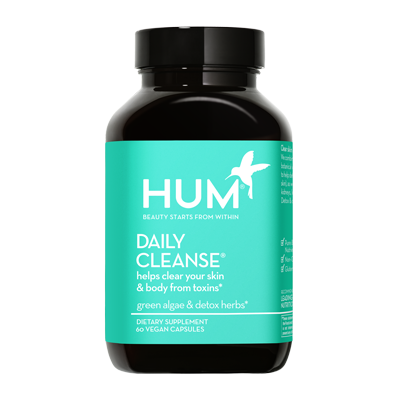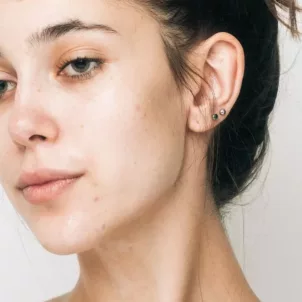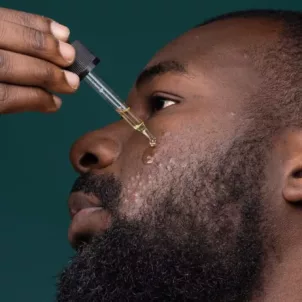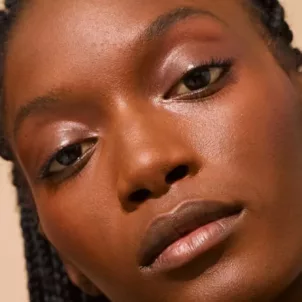Is zinc good for acne? Chelsey Amer, MS, RDN, CDN, recaps the research behind its ability to support a clear complexion. Plus: the top foods rich in zinc worth adding to your diet.
Breakouts happen for many reasons, from diet and hormones to your skincare routine. But what if the ticket to clear skin is as simple as adding a superstar nutrient to your diet? Zinc is a crucial mineral to support your skin’s health. In fact, zinc has been used for topical and oral support for a variety of skin conditions, from warts to sunburns, pigment disorders, wound healing, and inflammatory skin conditions for centuries. (Think about it: Nearly every mineral sunscreen and diaper rash cream contains zinc oxide.)
Zinc has many functions throughout the body, and its benefits go far beyond supporting skin health. Among other things, it’s essential for:
- Normal growth and development
- Enzymatic function and structure
- Immune health
- Overall cell health
Keep reading to see if and how zinc helps acne, how much you need daily, and where to find it in food and supplements.
Zinc and Skin Health
Zinc’s role in skin health is multifaceted. The skin is the third-most zinc-abundant location throughout the body. It is more concentrated in the epidermis than dermis layers of the skin. Because the skin is constantly in a state of renewal (new skin cells rise to the surface every four weeks), there’s a high demand for zinc-based proteins to support this role.
Zinc also takes on an antioxidant role, protecting against the production of free radicals that cause damage throughout the body. It also provides antioxidant protection against UV damage.
While zinc can complement the treatment of many dermatologic conditions, inadequate levels of it can contribute to other skin conditions. Acrodermatitis enteropathica, a severe zinc deficiency state, can result in skin manifestations such as widespread dermatitis.
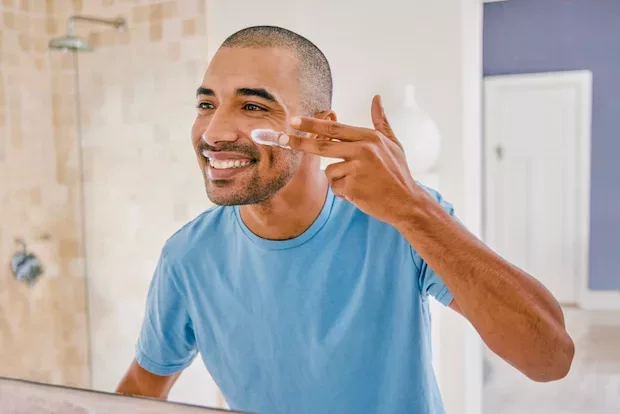
Is Zinc Good for Acne?
Zinc has proven beneficial for acne in study after study. According to researchers, the exact mechanism that makes zinc good for acne is unclear, but it can help minimize inflammation that causes acne, especially when used in conjunction with other treatments.
Additionally, studies show that patients who take zinc experience significant improvements in their acne compared to those who don’t. In some cases, zinc may even be a superior option to combat acne compared to certain antibiotics. Luckily, zinc is also a low-cost option with minimal systemic side effects.
Moreover, one meta analysis shows that individuals with acne have significantly lower zinc levels compared to controls without acne. Adding some of the zinc-rich foods listed below—like beef, yogurt, eggs, and pumpkin seeds—can definitely help raise your serum zinc levels. Furthermore, a supplement can help fill in the gap to help you meet your daily zinc needs if it’s hard to meet your needs from food alone. The Recommended Daily Allowance (RDA) for zinc is eight and 11 milligrams daily for women and men, respectively. Pregnant and breastfeeding women require more zinc (11 and 12 milligrams daily, respectively).
If you’re not getting enough zinc in your diet, taking a supplement with zinc can be beneficial. HUM’s Daily Cleanse packs 14 detoxifiers—including zinc, green algae, herbs, and antioxidants—that help your body shed impurities and promote clear skin from within. Many Daily Cleanse users report fewer breakouts after just six to eight weeks.
Tip: Experts suggest taking zinc supplements on an empty stomach for optimal absorption. Typically, that means one hour before eating or two hours after a meal. However, some individuals report an upset stomach from zinc supplements when taken on an empty stomach. In that case, it’s fine to take your supplement with food.
Foods Rich in Zinc
While research shows that acne can improve if you use topical and/or oral zinc, boosting your zinc levels through diet can help stave off breakouts and other skin conditions, too. Luckily, zinc is found in a wide variety of foods.
Here are some of the best food sources of zinc:
- Oysters contain the most zinc per serving than any other food, yet they are not the most accessible source of zinc for most people. That said, if you’re dining out and oysters are an option, remember that they’re an excellent source of this crucial mineral.
- Beef is one of the most popular sources of zinc in the United States. Beef contains 3.8 milligrams per three-ounce serving, which is about 35 percent of your daily needs.
- Pumpkin seeds are an excellent plant-based source of zinc, clocking in at 20 percent of the Daily Value for just one ounce (2.2 milligrams per serving). However, keep in mind that plant-based foods contain phytates, which inhibit zinc absorption. If you follow a 100-percent plant-based diet, it may be important for you to prioritize more zinc-rich foods like lentils, kidney beans, peanuts, and whole wheat bread.
- Breakfast cereals that are fortified with zinc are another excellent source of zinc. Many of them are fortified with a 25 percent Daily Value of zinc. Bonus: Breakfast cereals are often fortified with other crucial nutrients like iron.
- Yogurt and milk are common dietary sources of zinc that are relatively affordable compared to some other options. Paired with a fortified breakfast cereal, your meal can have nearly 35 percent of your daily zinc needs.
Other foods rich in zinc include:
- Turkey
- Pork
- Shrimp
- Cheddar cheese
- Lentils
- Eggs
The Takeaway
If you’re on the fence about taking zinc for acne, research shows that this mineral can help keep breakouts at bay. Zinc is a vital contributor to your skin health at large, and adequate zinc levels in your body show immense promise to promote skin clarity. Just remember that while zinc has the ability to help acne, the quest for clear skin requires a holistic approach. Moreover, before you add zinc supplements (or any others) to your routine, it’s important to discuss your protocol and unique needs with a trusted health professional, like a dietitian and/or dermatologist.
